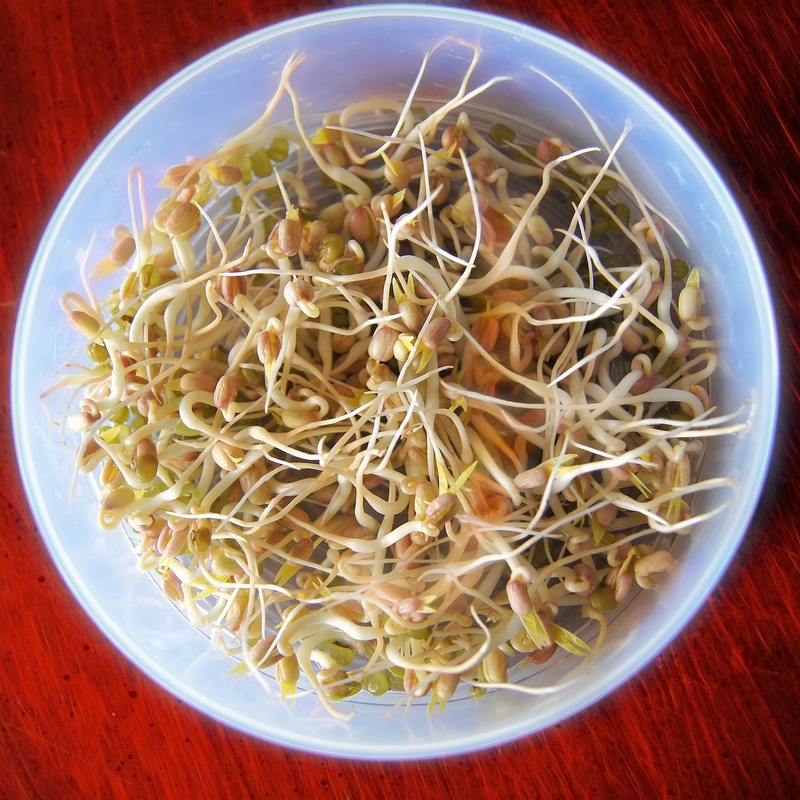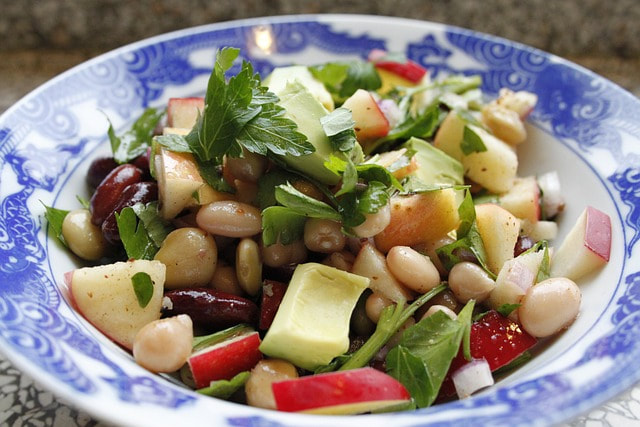What I didn’t know, and would learn later in my adult life, that beans and legumes are a staple in many cultures around the world. In fact, beans are one of the common foods consumed by people who live in the blue zones, where longevity and quality of life rank the highest in the world. What’s fascinating are the variety of beans consumed and how they’re prepared in each country. For example, centenarians in Okinawa, Japan, enjoy fermented or stir fried soybeans or mung beans, sprouted or fermented as well. Older folks in Nicoya, Costa Rica, consume hearty black beans and rice dishes regularly, and those in Sardinia, Italy, thrive on a variety of lentils, chick peas (garbanzo beans) and a variety of white beans mixed into soups and salads.
Why Beans Get a Bad ReputationThere are certain groups in the health and wellness space that believe some compounds in beans, namely lectins and phytates, are low-key poisonous to the body. They’ve deemed them “anti-nutrients,” because they bind essential minerals, like calcium, iron, and zinc, making these nutrients less available to us, and may also cause gastrointestinal discomfort. It’s true that eating raw beans may wreak havoc on your belly. However, when beans are soaked and cooked properly, a majority, if not all, of lectins and phytates are destroyed, making beans digestible with more ease. The level of digestibility is called bioavailability.I implore you to experiment with raw hard beans and legumes, soak them overnight, and prepare the way our grandparents did, not dumping straight from the can into a microwave oven or prepared dish. Plus, take a supplement called Bean-o if you have a gaseous reaction to beans, and see if it helps with the discomfort.
Why Learn to Cook Beans & Other Legumes from Scratch?At this point, you may want to open the canned beans sitting in your pantry and Google “chickpea recipes,” so you can make dinner tonight. However, I’d be remiss if I didn’t share the beauty of making beans from scratch.
Full disclosure: I was a non-eater of beans because of the anti-nutrients for a very long time until I tried chickpeas cooked in a pressure cooker, or Instant Pot. That was when I discovered that cooking beans from scratch is a game changer when it comes to texture and flavor. Slow cooking is also very satisfying in the winter, stirring the pot on the stove as you listen to music and decorate the home for the holidays. It is also a great way to fill the family up when on a low budget.
Here are seven reasons to consider cooking beans from scratch, whether you’re a current canned bean lover, wannabe bean lover, or seasoned bean fanatic.
- Eating freshly cooked beans is delightful. Beans cooked in a pressure cooker are a creamy, buttery, melt-in-your-mouth experience. Don’t have a pressure cooker? No problem! Soaking beans and legumes overnight and slow-cooking beans on the stovetop can give you that same creamy texture. Play around with herbs and spices. Add fresh colorful herbs on top, and don't be afraid of spice!
- Cooking beans from scratch may result in a higher amount of nutrition being absorbed by the body in digestion and absorption phase. Nutrients may be lost during the processing of canning beans. Compared to canned beans, dried beans have been found to have more protein, fiber, iron, potassium, and magnesium. They also have no sodium added, so the chef is in control of the sodium (salt) added.
- Cooking beans from the dried versions is more economical. According to the agriculture reports, as of 2023, dried beans cost 15 cents a serving, store-brand canned beans cost 34 cents a serving, and national brands cost 48 cents a serving. These cents add up to savings when you’re feeding beans to the family.
- Cooking beans from scratch may help with gas tolerance. When you cook beans on the stovetop or in a pressure cooker, you can control the texture. This means that you, or people around you, won’t have a reason to recite the fun little bean rhyme!
- Adding onions, garlic, during the cooking process creates the most flavorful bean, veggie, and spices combinations. Allium are bulbs like onions, chives, shallots, and garlic. They are full of anti-oxidants, natural anti-inflammatories and natural anti-biotics. They are super-foods too, going way beyond their basic nutrients when added to foods.
- Avoiding cans can decrease one's carbon footprint on the planet. Purchasing dried beans and legumes creates less waste and uses fewer manufacturing processes, resulting in a smaller food-related environmental footprint.
- Eliminating cans also eliminates any chemicals (like BPA) that might be found in the can. Keeping chemicals off of the plate and off of the body is important for health.
So whether one is adding beans after a long time like me, or enjoying the beans in new and interesting ways, let me know how your tummy feels after soaking or sprouting them, cooking them in an instant pot, pressure cooker, or slow cooked like grandma used to do. I would love to hear from you!
In Gratitude,
KJ Landis




 RSS Feed
RSS Feed